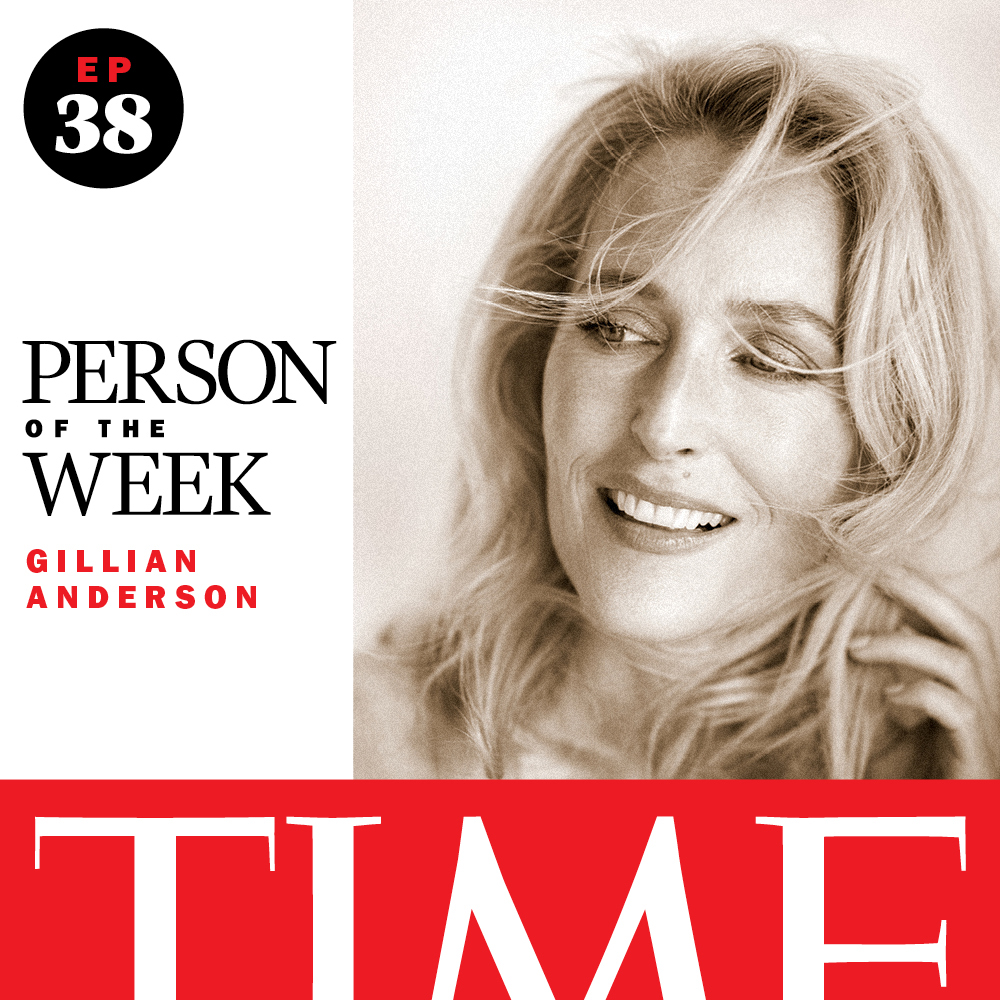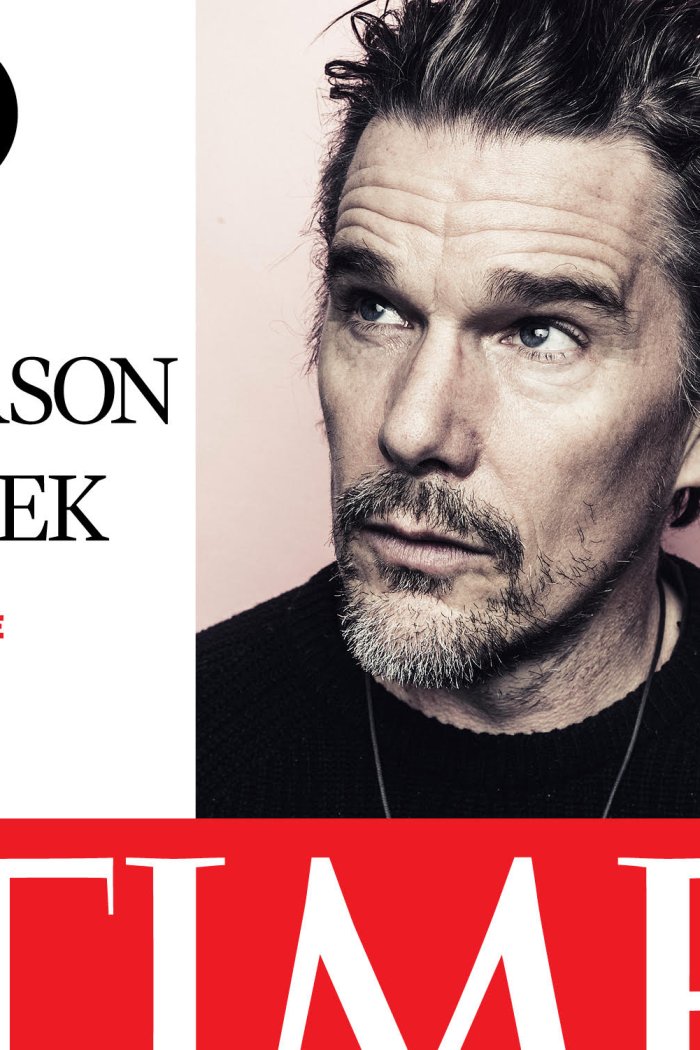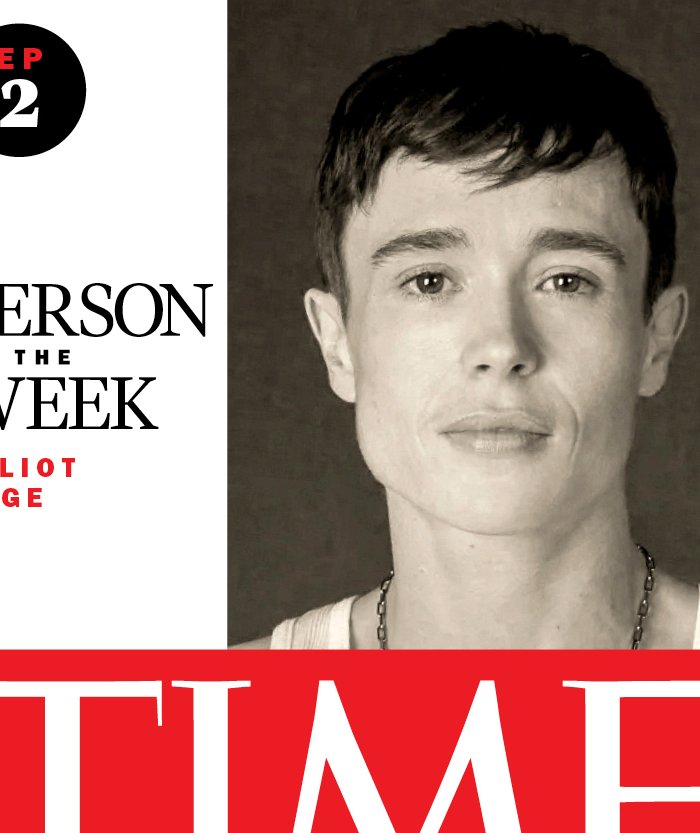Gillian Anderson has played some truly iconic TV roles: From the one and only Dana Scully on The X-Files, to Jean Milburn — the sex therapist in Sex Education — to her critically acclaimed performance as Margaret Thatcher in The Crown. Anderson embodies her roles so fully that her characters really do take on lives of their own, and over the course of her career, she’s won 2 Emmys and 2 Golden Globes for both The X Files and The Crown.
And in her new film, Scoop, she plays the real life journalist Emily Maitlis, who landed the infamous 2019 interview with Prince Andrew about his friendship with notorious sex offender Jeffrey Epstein. It’s a movie about journalism, scandal, and the unique role of the royal family — and in it, Anderson dramatizes a historical event that happened only a few years ago, yet already looms large in our collective memory. Scoop comes out April 5 on Netflix.
I caught up with Anderson and in our conversation, we talked about her adolescent punk phase, how she became Dana Scully, and the challenges of taking on roles based on real people and events.
Tune in every Thursday, and join us as we continue to explore the minds that shape our world. You can listen to the full episode here, but here are a handful of excerpts from our conversation, which have been condensed and edited for clarity.
On the so-called “Scully Effect,” about the impact of her X-Files character, Dana Scully:
There was a big study that was done by the Geena Davis project that was talking about the influence of women culturally. And the facts were that at the time that we were airing, there really weren’t a lot of other women on television who had agency, who were intelligent, who were as forthright and smart and capable and educated as Dana Scully was. You know, what we had seen on television right at the time was Baywatch. And so she was a very new kind of woman. And not only was she a forensic pathologist, but she was an FBI agent, a doctor, a scientist. And so she was a professional woman and women were seeing her for the first time and going: I want to be that, I want to do that, I see myself represented in that and I haven’t seen myself represented before. And suddenly she made it okay for women to be smart and professional and have agency. And so, it had a big influence on young women.
On playing Margaret Thatcher in The Crown:
Thatcher is an interesting character because, she’s so divisive, particularly in the U.K., because there were a lot of people who were completely enamored of her. And there are a great many people who absolutely revile her and everything that she stood for and everything they would say she did to their family, their country, their pocketbook. And so, people have very strong feelings about her over here. So I think what I’m grateful for is that how she was drawn within the context of the series of The Crown felt like it was very three dimensional, and you got to see a three dimensional version of her that had not really been exposed before or seen quite in that way. And I think it’s always interesting when you can look at a human being from all sides and not necessarily purely a side that you might have a reactive or, you know, very myopic response to, but are able to see all sides of the coin. And I feel like this series did that.
On recreating the scandalous 2019 BBC interview with Prince Andrew in her new Netflix film, Scoop:
We decided we were gonna just do the interview from beginning to end. And so that meant obviously a different type of preparation for Rufus [Sewell] and me, that we would be verbatim memorizing the interview, you know, 10, 11 minutes sitting there. And so the way they had set it up was with all of the cameras that we were using to shoot it, but also all of the cameras that were actually there on the day, all the little six cameras that were actually present during the real interview. And so there were six to eight cameras filming at the same time. So it was able to capture the interview, and we were basically able to run it as if we were doing a scene from a play almost.
And so we basically came in to work that day. There was no rehearsal. We just basically sat down, got mic’d up and made sure that our positions were correct for how it was in real life. And: action.
- Cybersecurity Experts Are Sounding the Alarm on DOGE
- Meet the 2025 Women of the Year
- The Harsh Truth About Disability Inclusion
- Why Do More Young Adults Have Cancer?
- Colman Domingo Leads With Radical Love
- How to Get Better at Doing Things Alone
- Michelle Zauner Stares Down the Darkness


